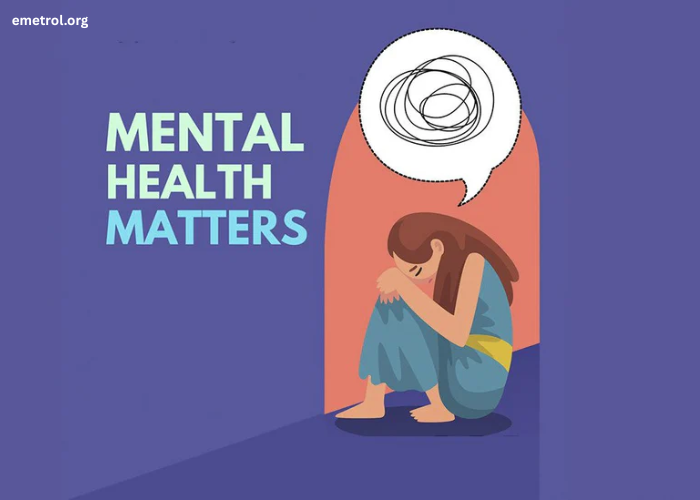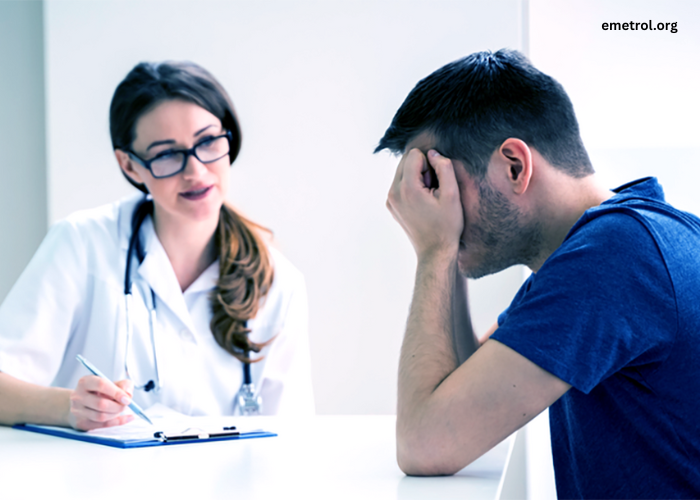Mental Health Matters: Get the Low Down on the Role of Emotional Well-Being
Everyone, regardless of their age, background or lifestyle, will have faced challenges and emotions that affect their mental health. It’s how we think, feel and behave every day. Good mental health makes it possible to learn, work and work well; it helps to support the development of healthy relationships, make good decisions and cope with stress. When we’re not feeling great in our heads, the little things can seem like big things, and it can also affect our physical health.
Most people don’t think about mental health until they have a problem, but it is just like physical health — it requires daily care. In the modern world of today, stress, pressure, and depression are increasing day by day. Discussing mental health and taking it seriously can help us to live our best, happiest lives.
Here’s what you need to know:
Your mental health has to do with your thoughts, feelings, and actions.
It is equally valuable to physical health.
We can all do things to boost our mental well-being.
Why Does Mental Health Matter In Every Day Life?
Important of Mental Health in Our Daily Life. Your work, your learning, your time with family, whatever you are doing, your mental state influences how you accomplish those things. For instance, if you’re feeling anxious, you may not be able to focus or communicate. If you feel good and upbeat, your day goes better.
Good mental health helps them to cope with problems and challenges more easily. They are able to regulate their emotions, cope with stress, and have good relationships. For example, a student who is mentally healthy can be better equipped to do well in school, because they can concentrate, feel at ease during a test, and ask for help and support when they need it.
Compared to two domains of life affected differently by mental health:
| Mental Health State | Impact on Work Life | Impact on Personal Life |
|---|---|---|
| Good Mental Health | Increased productivity, improved communication, less sick time. | Good relationships, sound decision-making, emotional stability. |
| Poor Mental Health | Low concentration, more absences, job burn-out. | Arguments, isolation, mood swings. |
Reminder: Mental health is more than mental illness; it is mental well-being for all of us.
How Does Mental Health Affect Physical Health?
Mental and physical health are deeply intertwined. When you’re always stressed or anxious, your body has a response. You may have headaches, stomach problems or even high blood pressure. Mental chronically long-term stress weakens your immune system, leading to an increased risk of getting sick.
Example: Let’s use depression. They may not eat, leading to malnutrition. They might also stop exercising and get more physically debilitated. And these physical declines in turn exacerbate the mental condition in a vicious cycle.
Here’s a table that compares the two:
| Mental Health Issue | Physical Effect | Long-Term Impact |
|---|---|---|
| Anxiety | Increased heart rate | Risk of heart disease |
| Depression | Fatigue, sleep problems | Obesity, diabetes risk |
| Chronic Stress | Muscle tension, headaches | Weakened immune system |
Minding your mental health helps you stay physically strong as well. That is the reason doctors now care for mind and body together. Many times, when you are mentally calm, your body does eventually oblige.
Remember: The cost of neglecting your mental health can still, quietly, be taken out of your physical body.
How Can You Tell If Someone Is Struggling With Their Mental Health?
Understanding the warning signs of poor mental health can help encourage you or someone you care about to get help early. What people say is often not what they feel, so you must look for clues in what they do or how they speak.
Here are some common signs:
Sad, or feeling down most of the time.
Oversleeping or insomnia
Avoiding friends or usual activities
Eating much less or much more than usual
Feeling hopeless, angry, or helpless
Having trouble focusing or remembering
No longer caring or wondering why they feel so worthless or want to die
Let’s consider an example. Here are some signs a friend may be struggling mentally if they suddenly stop texting, seem tired all the time, and avoid plans Instead of sidelining the shifts, check in with them. Just asking, “Are you okay?” can make a difference.
Remember, however, that not everyone presents the same signs. Some people may appear O.K. on the outside but they are suffering in silence. As we pay attention to health of the body, mental health check-ins are equally important.
How Do You Make Your Mental Health Better Every Day?
Mental health can be enhanced through little actions. Small habits, done daily, can lead to big results. Like brushing your teeth, tending to your mind should take place on a regular basis.
A few simple steps to begin:
Talk About Your Feelings: Don’t keep your feelings inside. Share with someone you trust.
Keep Moving: Physical activity produces chemicals that cause you to feel good.
Eat Well : Your brain needs all the love and care it can get!
Get Enough Sleep Lack of sleep can make you feel stressed or sad.
Take Breaks: Rest your brain throughout the day. Even five minutes helps.
Stay away from Drugs and Alcohol: Doing drugs or getting drunk only harm your mind and body.
Stay Connected Call friends or family. Social support is key.
Let’s put that another way in an example: A person who walks 30 minutes every day, eats good food and gives their best friend a call once a week is making a greater contribution to their mental health than they might acknowledge.
Gradually, these habits will create a healthier, more balanced mind.
What to Do if You or Someone You Know Is Having Suicidal Thoughts
If you or someone you know is having a hard time, the most important thing is that you’re not silent. There are all sorts of ways to get help, and it’s crucial to ask for it.
The place to start is by talking to a doctor, school counselor or mental health professional. They’re there to assist and not to judge. There are also support groups, online and otherwise, where people relate their tales.
Here’s a quick guide to our coverage:
Admit the Issue: Acknowledge that you need help.
Connect: Talk through the situation with a friend or family member.
Call A Professional: Schedule an appointment with a therapist or psychiatrist.
Set Up Your Support System: Keep in touch with those you love.
Adhere to a Treatment Plan: It may be therapy, medication or self-care measures.
As a reminder: Seeking help is a strength, not a weakness.
Sometimes it’s concern about what others will think. But remember to focus on yourself and your health and happiness! You wouldn’t try to fix a broken arm without a doctor; and you shouldn’t try to fix the mind.
Conclusion
Why does mental health matter? Most simply put, because it’s everywhere: what we think and feel, how we relate to one another, how we function from day to day. Your head requires as much care as your body. By knowing why mental health is important, learning the feelings and signs of troubles, and knowing where to turn for assistance, we can all help to build a more mentally healthy world.
As a student or parent or working adult, the state of your mental health can affect your happiness, success, and general well-being. Take one small action today for your mental health. It could be a walk, a talk or simply spending some time breathing.
FAQ’s
What Does ‘Mental Health Matters’ Actually Mean?
Of course, it implies that mental health is crucial to a good life, and that everyone should take that as seriously as they take physical health.
Can You Work on Mental Health Without Therapy?
Yes, exercise every day, sleep, talking to loved ones can help. But it’s a great help if you need it.
How Do I Know If I Need Mental Health Help?
If you’re persistently sad, anxious or overwhelmed for more than two weeks, consider talking to a mental health professional.
Is It Normal to Feel Anxious All the Time?
Although stress is a part of life, experiencing it all of the time could signal deeper problems. You need to have stress come and go — down when you work, and high zing when you’re threatened.
What Are Some Simple Things That Will Improve Your Mental Health?
With that time, take a walk, reach for a glass of water, go to sleep for 8 hours, journal or call up a friend. Small steps all add up over time.



